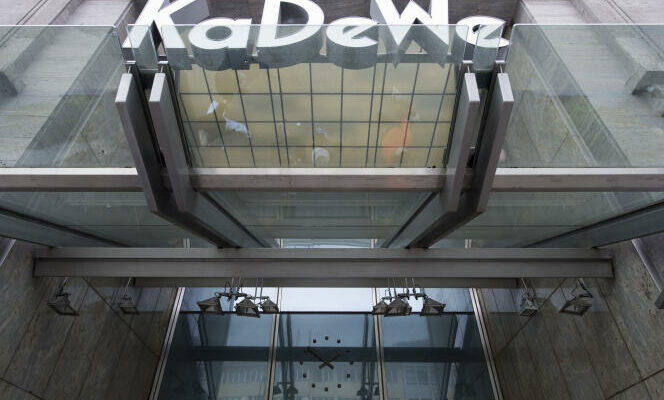KaDeWe is bankrupt. The Berlin temple of luxury shopping, one of the emblems of the German capital, filed for bankruptcy on Monday January 29, the final stage in the collapse of the Signa real estate group, which began in the fall.
Since the fall of its creator, the Austrian billionaire René Benko, Signa has seen all the jewels of the old empire fall one by one: KaDeWe takes into its bankruptcy two other luxury department stores which were attached to it within the company KaDeWe Group , the Alsterhaus, in Hamburg, and the Oberpollinger, in Munich. The Karstadt and Galeria Kaufhof stores, in the heart of the shopping centers of many German cities and bought by René Benko a decade ago, are also bankrupt.
This cessation of payment will penalize its international suppliers and the major brands present in the stores. Above all, 1,700 employees of the group see their future threatened, even if activity should continue throughout the duration of the procedure. Many believed the disaster could have been avoided. Specializing in the luxury segment, relatively protected from the crisis, the KaDeWe group recorded an increase in its turnover in 2023.
An emblematic place
KaDeWe, or Kaufhaus des Westens (“department store of the West”) is a 60,000 square meter colossus designed on the model of department stores Americans and inaugurated in 1905. Long the largest store in Europe, it remains an emblematic place in West Berlin, very close to the famous Ku’damm shopping avenue.
Bought by Signa in 2013, KaDeWe was the victim of the opaque management of the Austrian billionaire, who had created dozens of legal entities within his group which invoiced each other. The Signa group thus owned the store walls within a real estate company, which charged the commercial operating companies, also members of the group, exorbitant rents. According to magazine data Der Spiegel, the rent thus absorbed 13% of the turnover of the Berlin store, 17% of that of Hamburg and 20% of that of Munich, whereas, according to experts, only 10% of the turnover is bearable for such a activity. This complex financial architecture has been key to René Benko’s credit-driven expansion into the luxury real estate market over the past decade. Today it is a headache for creditors and judicial administrators.
The bankruptcy of KaDeWe should allow the company to denounce these abusive rental contracts. In turn, the real estate company which oversees the buildings, deprived of resources, is also expected to go bankrupt in the coming days. The consequences of the collapse of this financial house of cards are still uncertain. The only positive element: the Thai group Central, already a 50% shareholder of the KaDeWe group and which had been in negotiations for several weeks to acquire all of the shares, has a good chance of reaching an agreement.
You have 35% of this article left to read. The rest is reserved for subscribers.
